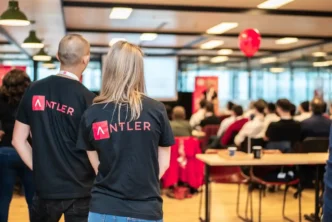Startup overvaluation risks are once again casting a shadow over the venture capital landscape. The inflated valuations that dominated the 2021 funding boom are still haunting founders and investors, particularly in today’s more cautious market. Now, as AI startups draw record-breaking multiples, many fear the cycle is repeating itself.
While turning down funding is rarely easy, exercising restraint may be the smarter move. Chasing high valuations too early can trap founders, forcing tough decisions down the line. Here’s why careful valuation management matters more than ever.
What’s Driving Startup Overvaluation?
Several factors inflate startup valuations. Experienced, second-time founders typically command higher multiples thanks to their proven track record, stronger networks, and lower perceived risk. But external market forces also play a major role — when investor demand outpaces available deals, prices rise fast.
Israel’s cybersecurity sector offers a clear example. Despite local venture capital drying up, foreign investment in early-stage cyber startups doubled last year. In 2024, Israeli cybersecurity companies raised $4 billion — a sharp jump from $1.89 billion in 2023.
Exit opportunities are booming too, with $4.5 billion in cyber M&A deals and 20 active cyber unicorns valued at a combined $61 billion. This fuels even more investor appetite, sustaining a valuation premium. Today, Israeli cybersecurity startups often command valuations up to 40% higher than their U.S. counterparts — the result of a thriving, self-reinforcing ecosystem.
The Real Problem with Inflated Valuations
The trouble starts when companies need to raise their next round. An inflated valuation makes follow-on funding harder, especially if growth hasn’t kept pace. Founders risk significant dilution, often facing flat or down rounds. Many fall back on extension rounds, raising more money at the same valuation — a temporary fix that rarely solves underlying issues.
Early overfunding also drives bad habits. With too much capital on hand, startups burn cash quickly, making them less efficient and harder to scale sustainably. Instead of building momentum, they find themselves stuck — raising capital just to survive rather than to grow.
Here’s a simple example: imagine a startup raises $3 million at a $12 million post-money seed valuation. If they hit $900,000 in annual recurring revenue (ARR), they could raise Series A at a $25 million valuation. But if that same seed round was set at a $25 million post-money valuation, the company risks hitting a ceiling. Their next round might have to be flat or down, stalling growth.
This happens often in Israel. Startups raise inflated seed rounds locally, but when they turn to U.S. investors for Series A, they lose that valuation premium. U.S. VCs may view their numbers more critically, forcing difficult conversations around valuation resets.
Faced with this dilemma, many founders opt for extension rounds to avoid a down round. It feels safer — no valuation reset, just extra runway. But unless business traction improves dramatically, it merely delays the inevitable. Future fundraising gets harder, not easier.
Extension rounds may buy time, but they often lead to even tougher decisions later. At some point, founders must confront reality — and sometimes, that means resetting the valuation.
How Founders Can Avoid the Trap of Startup Overvaluation
The most important rule? Raise only what you truly need. Too much early capital limits flexibility and often leads to wasteful spending. It also creates unrealistic expectations that hurt when it’s time to raise the next round.
Next, stay laser-focused on capital efficiency. If you’ve already raised at a high valuation, tighten expenses and extend your runway. Investors respect discipline, especially when markets cool.
Finally — and critically — don’t be afraid of a valuation reset. Flat or down rounds feel painful, but they’re often the healthiest move. Smart investors understand that protecting founder motivation matters more than preserving early valuations. Many VCs offer additional stock options to keep key team members aligned after a down round.
There’s a misconception that down rounds signal failure. In reality, they’re far more common than most founders realize — just rarely talked about publicly.
What matters isn’t the headline valuation, but the strength of the team, the product, and the market traction. If those fundamentals are solid, investors will show up — even if the valuation dips temporarily.
A well-executed reset clears the slate, allowing startups to grow sustainably instead of chasing inflated numbers. In the long run, avoiding startup overvaluation risks positions founders to scale smarter, preserve equity, and build businesses that last.













